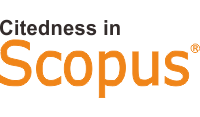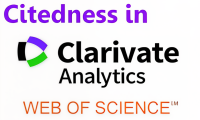How did its Charity Go? The Practice of Zakat Management in e-Commerce Platforms
DOI:
https://doi.org/10.46870/milkiyah.v3i1.758Keywords:
Zakat, Charity, E-commerce platformsAbstract
This study delves into the application of zakat within the realm of e-commerce platforms, specifically focusing on the accuracy and accountability of zakat calculation. It underscores the significance of assessing the precision and transparency of zakat collection and distribution within the digital landscape, particularly through platforms like Tokopedia. By employing a qualitative approach with investigative inquiry, the research facilitates a comprehensive comprehension of zakat practices within e-commerce. Data were gathered through thematic exploration, observation, and scrutiny of pertinent documents to ensure conformity with Sharia law. The research underscores the challenges associated with precise zakat calculation and accountability in reporting. Users necessitate clear guidelines for accurate zakat computation, including distinct benchmarks for gold and silver with regularly updated price parameters. Moreover, e-commerce platforms must guarantee transparency in zakat fund reporting. The establishment of policies for monitoring and supervising e-commerce platforms and integrated philanthropic entities is imperative. Additionally, the researcher advocates for further investigations to delve into user preferences concerning zakat practices and recommends collaborative endeavours among philanthropic bodies, governmental entities, and users to enhance charitable practices amidst the dynamic digital landscape.
References
Abbas, A. (2020). Does Zakat Signal the Firm Value? International Journal of Zakat, 5(1), 55- 66. https://doi.org/10.37706/ijaz.v5i1.205
Abbas, A., & Hannani, H. (2021). An Analysis of Accounting Practices for Zakat, Infaq, and Sadaqah in Lembaga Amil Zakat, Infaq and Sadaqah Nahdatul Ulama (LAZISNU) Parepare, Indonesia: Standardization and Proposed Solutions. Islamic Banking and Finance Review, 8(2), 36-54. https://doi.org/10.32350/ibfr.82.02
Atmaja, W., & Anggraini, T. (2021). Analisis Transparansi dan Akuntabilitas Pengelolaan Dana Zakat, Infaq dan Sedekah (ZIS) Lembaga Amil Zakat Yatim Mandiri Medan. Journal of Islamic Accounting Competency, 1 (1), 71-87. http://repository.uinsu.ac.id/id/eprint/12559
BAZNAS. (2023). Badan Amil Zakat Nasional. Retrieved November 10, 2023, Retrieved November 10, 2023, from https://baznas.go.id/ Jakarta: BAZNAS.
Doddy, M., Ali, J., Hindardjo, A., & Sani, A. (2022). Boost Zakat Fundraising Through E-Customer Relationship Management in Digital Era. Technium Business and Management, 2(2), 61–70. https://doi.org/10.47577/business.v2i2.6762
Fauza, Z., Batubara, N. Z., Al-Baraqy, M., & Ramadani, P. (2023). Strategi Fundraising Dana Zakat Infaq Sedekah dan Wakaf (Ziswaf) pada e-commerce Linkaja Syariah. Cemerlang: Jurnal Manajemen Dan Ekonomi Bisnis, 3(1), 171–183. https://doi.org/10.55606/cemerlang.v3i1.714
Ghofur, R. A., & Suhendar, S. (2021). Analisis Akuntabilitas dan Transparansi pada Organisasi Pengelola Zakat dalam Memaksimalkan Potensi Zakat. Jurnal Ilmiah Ekonomi Islam, 7(3), 1866–1879 https://doi.org/10.29040/jiei.v7i3.2137.
Haryanto, R. (2023). Branding the Role of the District Baznas in Madura Through Online-Based Digitalization in Efforts of Community Economic Empowerment. IQTISHADIA Jurnal Ekonomi & Perbankan Syariah, 10(1), 84–99. https://doi.org/10.19105/iqtishadia.v10i1.8771
Izah, F. (2023). Hukum Fundraising Pada Lembaga Filantropi di Indonesia. Thesis. UIN Syarif Hidayatullah Jakarta. https://repository.uinjkt.ac.id/dspace/handle/123456789/74015.
Muhammad, H., & Sari, N. (2021). Halal responsibilities through Islamic business ethics practices: Implementation of trustworthy and fair values in traditional markets. In Halal Development: Trends, Opportunities and Challenges (pp. 94–99). CRC Press. https://doi.org/10.1201/9781003189282-16
Muhammad, I. (2019). Analysis of Zakat System in high-income Islamic countries. The Journal of Muamalat and Islamic Finance Research, 16–2. https://doi.org/10.33102/jmifr.v16i2.219
Nasution, L. F., Syahbudi, M., & MA, S. (2022). Analisis Strategi Fundraising Terhadap Peningkatan Pengelolaan ZIS Pada Lembaga Amil Zakat Nurul Hayat Cabang Medan. PESHUM: Jurnal Pendidikan, Sosial Dan Humaniora, 2(1), 70–80. https://doi.org/10.56799/peshum.v2i1.1032
Nugroho, A., Ahmad, A., & Wijoyo, W. (2021). Analisis Strategi Fundraising Zakat Dalam Meningkatkan Jumlah Muzakki Studi Pada LAZ BaitulMaalKu Kabupaten Karawang. Jurnal Ekonomi Syariah Pelita Bangsa, 6(01), 77–85. https://doi.org/10.37366/jespb.v6i01.179
Owoyemi, M. Y. (2020). Zakat management: The crisis of confidence in zakat agencies and the legality of giving zakat directly to the poor. Journal of Islamic Accounting and Business Research, 11(2), 498–510. https://doi.org/10.1108/JIABR-07-2017-0097
Pahleviannur, M. R., De Grave, A., Saputra, D. N., Mardianto, D., Hafrida, L., Bano, V. O., Susanto, E. E., Mahardhani, A. J., Alam, M. D. S., & Lisya, M. (2022). Metodologi Penelitian Kualitatif. Pradina Pustaka. https://thesiscommons.org/jhxuw/download?format=pdf
Rifani, R., Taufiq, M., & Sholihin, A. (2023). Analisis Akuntabilitas dan Transparansi Pengelolaan Zakat, Infak dan Sedekah (ZIS)(Studi Kasus Baznas Kota Payakumbuh). Jurnal Ilmiah Ekonomi Islam, 9(2), 2732–2743.https://jurnal.stieaas.ac.id/index.php/jei/article/view/9004/3949
Rosele, M. I., Muneem, A., Rahman, N. N. B. A., & Ali, A. K. (2022). The Digitalized Zakat Management System in Malaysia and the Way Forward. AL-IHKAM: Jurnal Hukum & Pranata Sosial, 17(1), Article 1. https://doi.org/10.19105/al-lhkam.v17i1.5365
Sakha, E., Rafiei, A., Loloie, K., & Qureshi Crane, S. H. (2021). The Role of Hazrat-e Khadija in Defining Almsgiving in Early Islamic Ages and its Reflection on the Functionality of Safavid Women Building Creators. Islamic Art Studies, 18(41), 234–251. https://doi.org/10.22034/IAS.2020.237106.1285
Salih, S. H., & Jabr, M. A. (2023). The Ayas Jurisprudential RulingsRelated to Almsgiving (Zakat) in al-Hakim al- Jushami’s (D. 494 AH) al-Tahtheeb Interpretation Book: Surat al-Baqarah as a Model. Journal of the University of Anbar for Humanities, العدد الخاص بوقائع المؤتمر العلمي الدولي الثاني للعلوم الانسانية والاجتماعية. https://www.iasj.net/iasj/article/287663 (an abstract and introduction view)
Sandy, U. A. (2023). Pentingnya Transparansi dan Akuntabilitas Laporan Keuangan Dana Zakat Infaq dan Shadaqoh terhadap Kepercayaan Pembayar Zakat, Infaq, Shadaqoh di LAZISMU DIY. Jurnal Informatika Ekonomi Bisnis 5(3), 1059–1064. https://doi.org/10.37034/infeb.v5i3.618
Setiyaningsih. (2017). Manajemen Investasi Wakaf Produktif Berbasis Syariah (Studi di Aksi Cepat Tanggap). Institut Ilmu Al-Quran Jakarta, Skripsi.
Soehardi, D. V. L. (2023). The role of financial technology in ZISWAF (Zakat, Infak, Alms and Wakaf) collection. Enrichment: Journal of Management, 13(3), 1964–1975. https://doi.org/10.35335/enrichment.v13i3.1513
Suaka, M., Mardenis, M., & Nurdin, Z. (2021). Management and Supervision of Zakat at The National Amil Zakat Agency (Baznas) of Bengkulu Province in 2019-2020. JURNAL ILMIAH MIZANI: Wacana Hukum, Ekonomi, Dan Keagamaan, 8(1), 45–54. http://dx.doi.org/10.29300/mzn.v8i1.5343
Sumeyra, Yakar. (2021). (PDF) The Inner and Outer Dimensions of the Three Pillars of Islam; Praying, Fasting, and Almsgiving | Sümeyra Yakar—Academia.edu.https://www.academia.edu/75356364/The_Inner_and_Outer_Dimensions_of_the_Three_Pillars_of_Islam_Praying_Fasting_and_Almsgiving
Syahrul Arifin. (2022). Pembekuan Aset ACT sebagai Sinyal Pemerintah Siap Mengelola Dana Publik. Universitas Muhammadiyah Jakarta. Retrieved March 10 From https://umj.ac.id/opini/pembekuan-aset-act-sebagai-sinyal-pemerintah-siap-mengelola-dana-publik/
Wulan, M., Khairunnisa, H., & Bahri, E. S. (2018). Internal audit role in digital Zakat finance: Case study at a Zakat Institution in Indonesia. Indonesian Conference of Zakat-Proceedings. http://dx.doi.org/10.37706/iconz.2018.129
Yulianti, L. (2021). Analysis of Potential Use of E-Commerce During the Covid-19 Pandemic in Zakat Receiving. Fair Value: Jurnal Ilmiah Akuntansi Dan Keuangan, 4(2), 923–931. https://doi.org/10.32670/fairvalue.v4iSpesial%20Issue%202.1255
Zaimah, N. R. (2017). Analisis Progresif Skema Fundraising Wakaf dengan Pemanfaatan E-Commerce di Indonesia. ’Anil Islam: Jurnal Kebudayaan Dan Ilmu Keislaman, 10(2), 285–316. https://jurnal.instika.ac.id/index.php/AnilIslam/article/view/61
Downloads
Published
How to Cite
Issue
Section
License
Copyright (c) 2024 Milkiyah: Jurnal Hukum Ekonomi Syariah

This work is licensed under a Creative Commons Attribution-NonCommercial 4.0 International License.

















